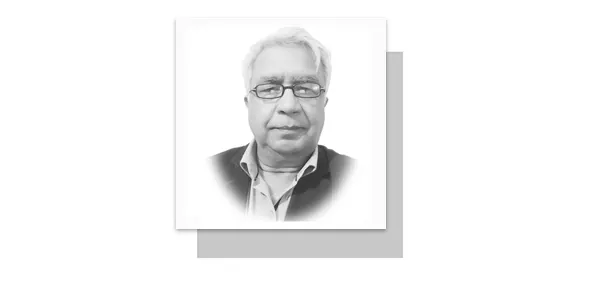THERE’S no denying the fact that every individual is preprogrammed to look for his good to prosper and attain a certain elevation in life. But it’s equally valid that education, civilization and nationhood demand an equal dedication to the collective good. Pakistan needs this more than ever now because here individuals are possessed with the resources more than the state, which is mainly because of not working for the collective good. There’s a very small percentage of Individuals in Pakistan who are bestowed by God with unique characteristics to thrive on the resources and perks, while a large majority of the individuals here are worried about their next coming lunch.
Pakistan being a Muslim country and established in the name of Islam, even after 75 years of its inception should not have been in such a precarious situation where financial, political and social divide is ruling the roost. Islam stresses that wealth should not concentrate in the hands of a few individuals and has devised several practicable ways and means to distribute a legal and moral share among the poor lot also to move towards a welfare state by following the path of collective good. But, so far, it hasn’t happened here, even after multiple experiments have been made in tax collection and revenue generation. The divide of the collective good has been expanding with a greater level and speed these days.
Another way to achieve some level of collective good is to follow the concept of nationalism and nationhood. Our neighbouring states have followed this. For example, China, Iran and India popularized nationalism and nationalist leaders and politics which has helped them cater their public good at a wider level leading to collective benefits and solutions of the issues related to collective welfare. It is right to argue that they have not eliminated poverty, hunger and lawlessness but it’s equally true that they have surely achieved a larger level of collective good and have maintained a fair balance between the individual good and collective good. They have better foreign exchange reserves and socio-political progress because of which they are playing well in the national and international arena for the collective benefit of their people.
Almost every nation of the world has realized that the survival and strength of the state depends largely on working for the collective good because it strengthens almost every section of the society and consequently within and without borders there is a strong message. Especially, when the money stays inside the country and is spent for the people inside the benefit goes to all but if a few individuals get rich and migrate with their money outside of the country, they do not contribute to the collective good of the state. This makes the people and the state weak and desperate. People begin to struggle hard and psychologically speaking, find no guarantees for the good of their life. This also raises the rate of social and street crimes which bring further turmoil to the exchequer of the state which fails to maintain peace and order in the country.
This is a global world now that has open borders for many to invest in, but the investor looks at the overall conditions of the people, the law and security situation and an environment of certainty and surety. Working for the collective good does create such an environment where foreign investment would find a safer and more productive opportunity to survive and thrive. Clever and wise states have done so and now are reaping the benefits.
So, the tide must be turned and matters must be reversed for the benefit of the greater section of the society so that this section may not be left deprived. The rich capitalist states too have individual rich people, but the state takes the responsibility and commitment to spread benefit to all and sundry. All planning and policies are oriented to the welfare of the masses so that’s why the health and education facilities are equal opportunity-based plans. The life standard of the poor and the middle class is much easier than that of Pakistan. The Pakistani people are experiencing multi-pronged and multifaceted shapes of socio-political issues and this is further aggravated because of the financial crunch brought about by following non-collective-benefit-driven policies and planning. Pakistan and the condition of its people are calling for an urgent solution to their issues lest it should turn to any dangerous social anarchy. All anti-people crimes like, hoarding, mixing good with bad and other black-marketing practices should be curtailed or contained. Similarly, the security level for the people must be raised and ensured. The government must tax the rich and benefit the poor and the needy. There must come such plans and schemes where the middle class and the lower class may only benefit because the rich capitalist would benefit automatically. This may ensure collective benefit and our society may also turn to be an egalitarian one.
—The writer is a Professor of English at Emerson University, Multan, and has a vast international exposure.
Email: [email protected]










